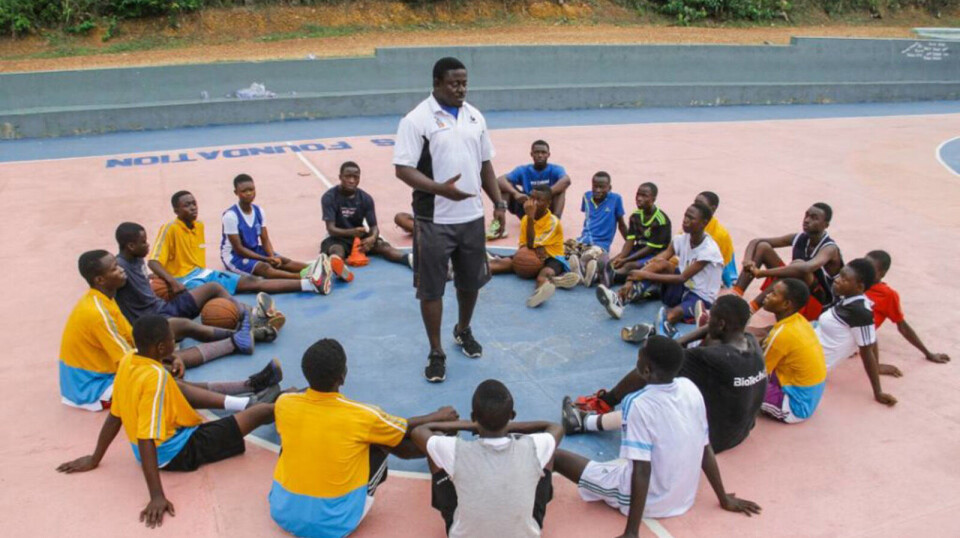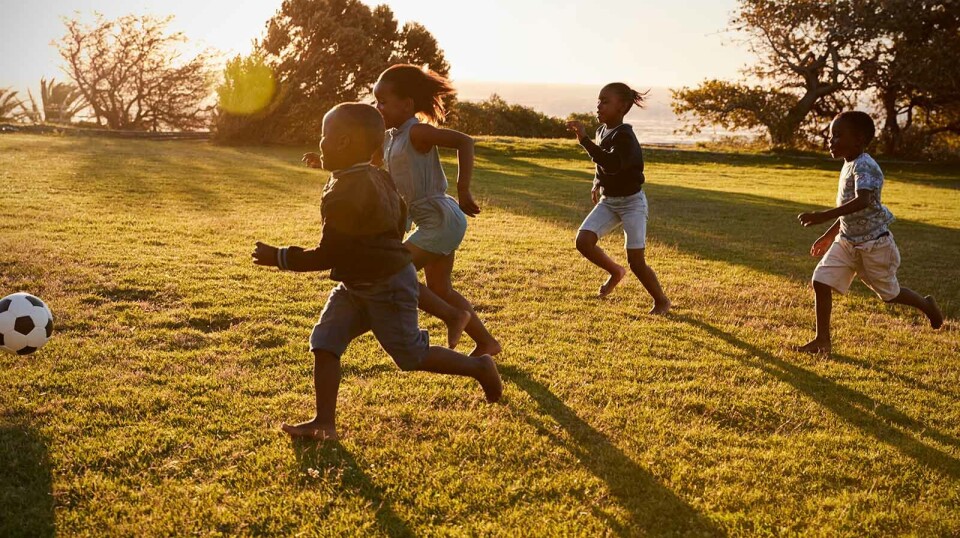THIS CONTENT IS BROUGHT TO YOU BY The Norwegian School of Sport Sciences - read more

Is sports a good tool for achieving the UN's Sustainable Development Goals?
Traditional gender roles, attitudes towards people with disabilities, and the frequent prioritisation of football present obstacles to achieving these goals, a new study shows.
Many organisations are measured by whether they manage to achieve the UN's Sustainable Development Goals.
In several developing countries, sports are also used as a tool to achieve many of these goals.
But how well do they actually work?
Positive consequences are exaggerated
Derrick Charway found many challenges when he travelled around Ghana to see how they were implemented in practice. He is a research fellow at the Norwegian School of Sport Sciences (NIH).
“I think many have believed that the positive consequences of sports in countries like Ghana are exaggerated. And that is probably also true,” says Charway.

The study addresses 3 of the UN's 17 Sustainable Development Goals: Healthy lifestyle, gender equality, and strengthening women's and girls' positions and rights for people with disabilities.
These goals were also central to the plans of the Ghanaian authorities.
The goals have strong support
Charway travelled around his home country and conducted qualitative interviews with 52 high-ranking individuals responsible for implementing government policy.
There were representatives from the authorities, regional sports directors, sports organisations, national sports federations, and organisations for development and peace.
His findings demonstrate the support and willingness to use sports as a tool for promoting gender equality and advancing rights.
The policy is clear and has broad support from the authorities. This is also the case in Zambia and other nations, according to Charway.
Football is prioritised
However, the study shows that sports do not manage to be inclusive for women and people with disabilities as the goals imply.
“Even though they want more women to participate in sports, there are cultural requirements, especially out in the districts of Ghana, that want girls to help at home. In addition, there are religious requirements, where you have some Muslim communities and Jehovah's Witnesses who do not allow girls to participate in sports,” Charway explains.
There are also very few women in these leadership positions who were interviewed.
Charway interviewed three who had actually obtained leadership positions. They spoke of great challenges and fierce battles to get the positions they held.

“When I speak with them, they acknowledge that, yes, a woman can be in sports, but the reality is that many live under cultural rules that make them believe that sports are too brutal or tough for women to get such positions. It is these social structural problems that make it challenging to use sports as a tool to achieve sustainability goals in countries like Ghana," Charway believes.
Ghana has been a major football nation for many years and made it to the quarterfinals of the World Cup in 2010.
But the widespread popularity of football also hampers the achievement of sustainability goals.
“There's a clear unequal distribution of resources, where football is often prioritised. When women are not given the opportunity on the football field, it is detrimental to the work for gender equality through sports," he explains.
Four main findings
This is one of four main findings Charway points out in his thesis.
- Political decisions lead to unequal distribution of resources; football is prioritised over other sports.
- Sociocultural dynamics like the Ghanaian patriarchal culture, strong religious faith, entrenched attitudes, and fixed gender roles hinder gender equality and inclusion in sports.
- Lack of resources, qualified sports leaders, and women in leadership roles.
- The institutional framework provides few clear guidelines for implementing political action; the political processes are not inclusive; and people have limited trust in the organizstions working for sustainable goals, which reduces their legitimacy.
“All this makes it difficult to use sports as a tool for sustainable development in Ghana. To achieve the goals, there needs to be a thorough assessment of local needs and consultation with both governmental and non-governmental actors,” Charway says.
You can watch Derrik Okpoti Charway defend his thesis on NIH's YouTube channel on June 12.
References:
Charway, D. & Strandbu, Å. Participation of girls and women in community sport in Ghana: Cultural and structural barriers, International Review for the Sociology of Sport, 2024. DOI: 10.1177/10126902231214
Charway, D.O. Sustainable Development Goals through Sport: An Analysis of Policy Implementation in Ghana, Dissertation from the Norwegian School of Sport Sciences, 2024.

This content is paid for and presented by The Norwegian School of Sport Sciences
This content is created by The Norwegian School of Sport Sciences' communication staff, who use this platform to communicate science and share results from research with the public. The Norwegian School of Sport Sciences is one of more than 80 owners of ScienceNorway.no. Read more here.
More content from The Norwegian School of Sport Sciences:
-
Football expert wants to change how people watch football at home
-
Kristine suffered permanent brain damage at 22: "Life can still be good even if you don’t fully recover"
-
Para sports: "The sports community was my absolute saving grace"
-
Cancer survivor Monica trained for five months: The results are remarkable
-
What you should know about the syndrome affecting many young athletes
-
New findings on how athletes make the best decisions




































